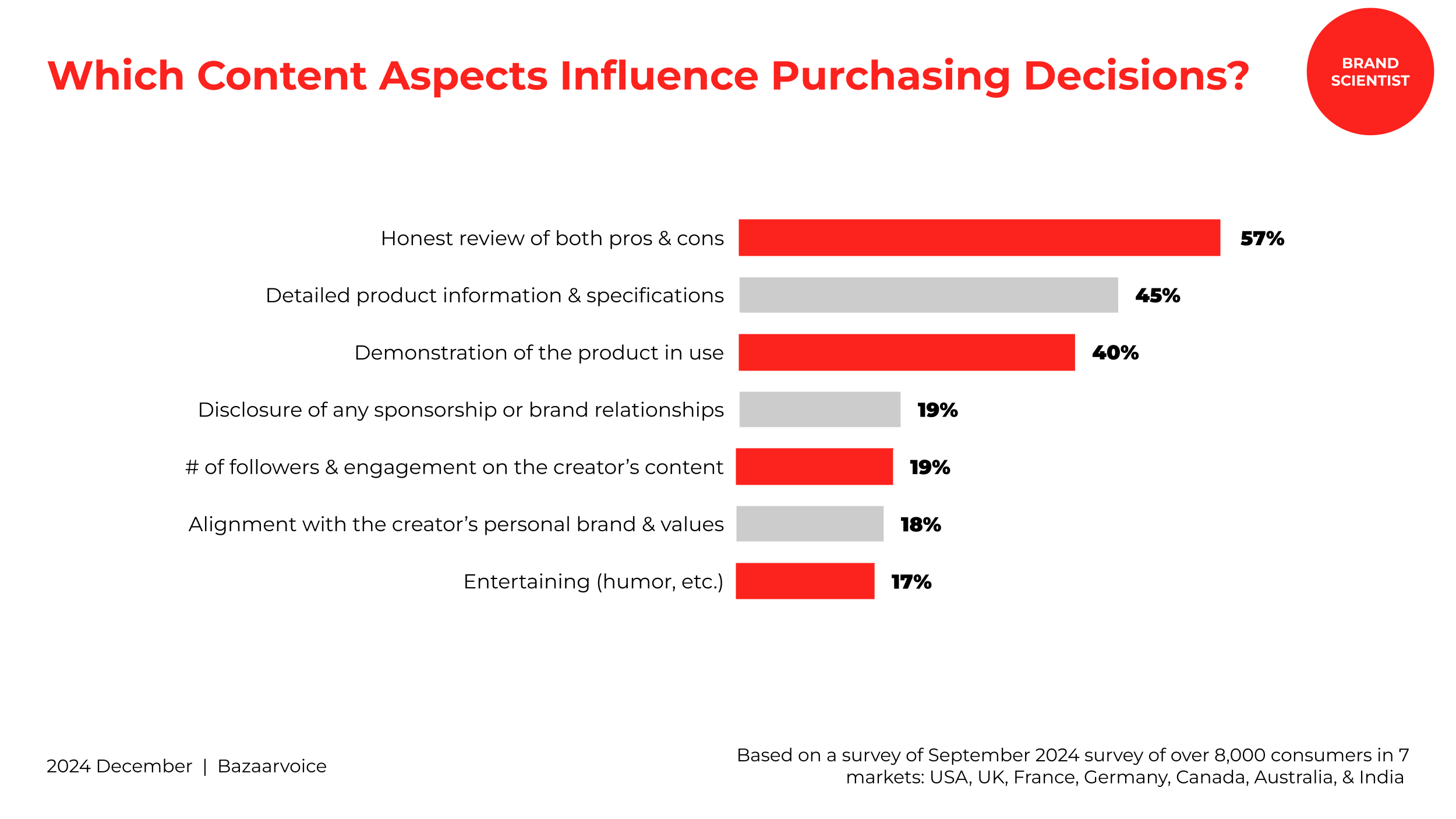Honest Reviews Of Pros And Cons Top Purchasing Sway
Influencer marketing budgets continue to rise as brands seek the authenticity that consumers crave. According to Bazaarvoice’s latest research, the most important factor influencing shoppers’ purchasing decisions is an honest review of both pros and cons, cited by 57% of respondents. This preference for transparency surpasses other key content elements, such as detailed product information (45%) and product demonstrations (40%).
Surprisingly, only 19% of consumers consider sponsorship disclosures to be a major factor when evaluating influencer content. However, younger demographics are more attentive to brand relationships, with 28% of 18-24-year-olds and 26% of 25-34-year-olds factoring sponsorship disclosures into their purchasing decisions. This indicates that while authenticity is essential, younger consumers are more critical of influencer-brand partnerships.
Beyond influencers, user-generated content (UGC) is an increasingly important factor in the decision-making process, especially among younger shoppers. While 65% of all respondents consider UGC valuable, this figure rises to 80% among 18-24-year-olds and 76% among 25-34-year-olds. Nearly half (47%) of shoppers place more trust in user reviews on retailer websites than in brand-generated social media content, influencer posts, or product demonstration videos. This highlights the growing power of peer reviews in shaping purchase behavior.
As consumers prioritize authentic and transparent content, marketers must refine their influencer and content strategies. Leveraging honest reviews, strengthening UGC initiatives, and adapting to younger audiences' increasing scrutiny of brand partnerships will be crucial for building trust and driving conversions.
Key Actionable Takeaways:
Prioritize Authenticity in Influencer Partnerships – Work with influencers who provide honest reviews, including both pros and cons, to build trust with consumers.
Leverage User-Generated Content (UGC) – Encourage and showcase customer reviews, testimonials, and organic content to enhance credibility.
Emphasize Transparency Without Overloading Disclosures – While sponsorship transparency matters to younger consumers, focus on organic storytelling rather than heavy disclaimers.
Optimize Product Reviews on Retailer Websites – Given that 47% of shoppers trust user reviews more than other content, ensure a strong presence on e-commerce platforms.
Collaborate with Micro-Influencers – Partner with niche creators who have high engagement and credibility within their communities.
Invest in Product Demonstrations – While honest reviews are the top factor, demonstrations (40%) also influence decisions—create engaging video content showcasing real-life product use.
Engage Younger Consumers with Transparent Branding – Since Gen Z and Millennials pay closer attention to sponsorship disclosures, ensure partnerships feel natural and aligned with their expectations.
Encourage Customers to Share Reviews – Incentivize satisfied customers to leave reviews and share their experiences through contests, discounts, or recognition.
Monitor and Respond to Reviews and UGC – Engage with customer feedback to enhance credibility and show responsiveness to consumer concerns.
Balance Influencer and Peer-Generated Content – While influencer marketing is important, integrate UGC and verified customer testimonials for a well-rounded content strategy.
